Knives Out (2019) is a murder-mystery film from writer-director Rian Johnson. It stars an ensemble cast of A-listers including Daniel Craig, Jamie Lee Curtis, Chris Evans, and many more in the tale of investigators looking into the suspicious death of Harlan Thrombey, a mystery writer and patriarch of a large and eclectic family. It drew raves out of TIFF this year and is now available for the public to enjoy. Will this succeed with general audiences just as well as cinephiles?
**Major spoilers ahead.**
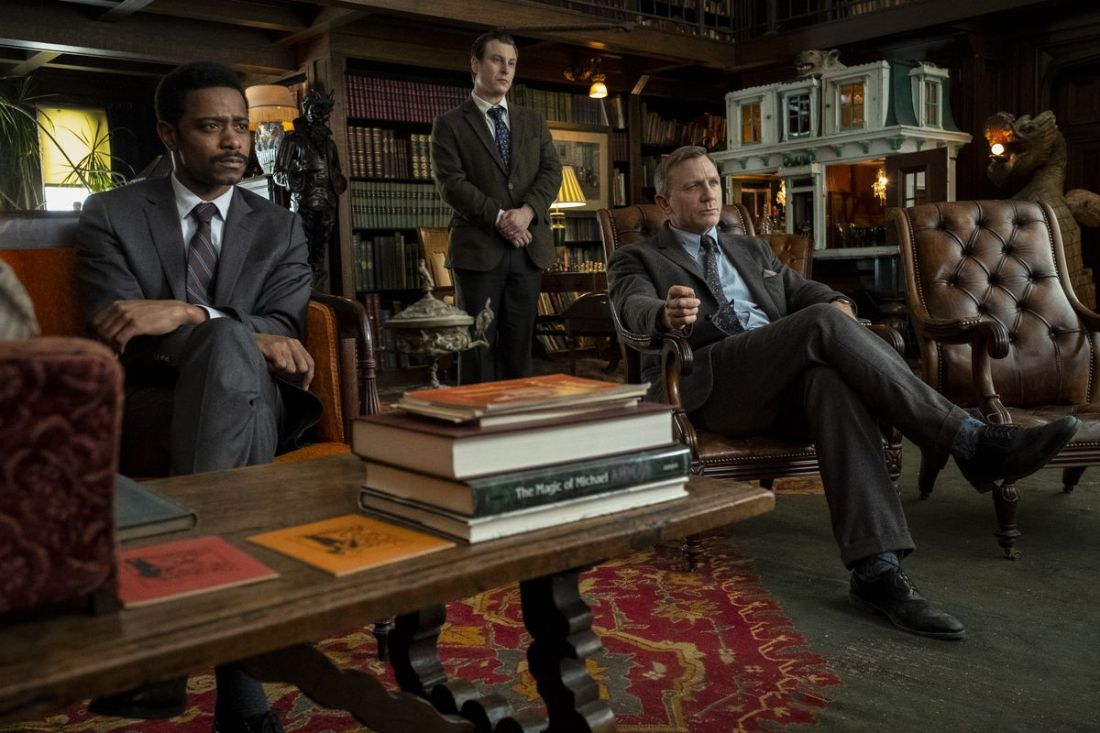
I knew from the moment I saw The Last Jedi that Rian Johnson wanted to tell a mystery story. His take on Star Wars ended up being one of major narrative whiplash: a constant back-and-forth, playing with audience expectations and flipping the script to keep us surprised at every turn. For some it worked, while for others like myself, it felt ham-fisted and overcooked. I hoped that with Knives Out Johnson would be able to get it all out of his system, rather than attempting to pull the wool over the audience’s eyes in scenarios or genres where it doesn’t make sense. And for the most part, he succeeded…though not entirely without consequence.
This film is unique in that the murder is “solved” in the first 45 minutes. We spend the first act getting to know the principle characters, then we start making our own assumptions and guesses at the culprit…then Johnson just hands us the answer! It had me genuinely surprised for all the right reasons: I thought I would be chasing Johnson’s trail the whole time while he’s two or three steps ahead of me, but instead I was left reeling and trying to recompose myself to figure out where the story could possibly be going next. The character of Benoit Blanc is a fun little red herring at the beginning…we think we will be seeing the film from his eyes, but instead we spend the entire second half hoping he doesn’t figure out what we already know. That’s such a clever reversal of how these stories usually go…and also makes the ending more impactful once we drop our guard and think we know exactly what’s happening!
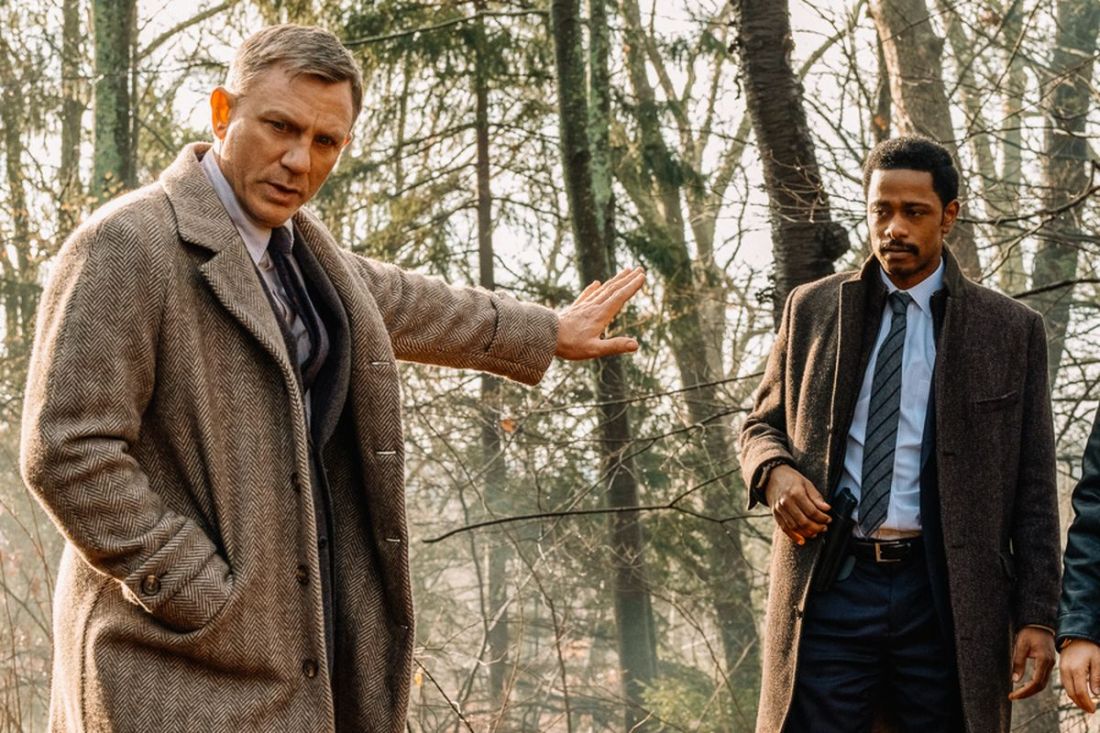
I like what the final reveal is doing on paper. While we believe to have put all the pieces together already, Johnson throws one more curveball in there to upend what we thought we knew happened. First we are told he committed suicide. Then we are led to suspect that Harlan was murdered. Then we discover that his nurse accidentally overdosed him and he did, in fact, commit suicide to cover it up for her. Then at the very end we learn that he wasn’t overdosed at all, and the renegade grandson tried to stage it so the nurse appeared guilty of murder! At the very least, the final twist answered one of my nagging questions throughout the film: “there’s no way that guy is still standing after taking 100 mg of morphine to the bloodstream.” But the whole plot feels so ridiculous, it’s hard to take it seriously. Practically speaking, it serves the purpose the plot needs it to, but it could’ve used a bit more fine-tuning so that the audience doesn’t have to take a giant leap of logic to get on board with this plot.
Realistically though, this whole story reeks of coincidences and plot conveniences. You should’ve seen how hard I rolled my eyes when it was revealed that the nurse had a “condition” that prevents her from lying without vomiting. Jesus fucking Christ, Rian, that’s the game we’re gonna play here?? But even assuming the audience accepts this ridiculous claim as humanly possible, there are plenty of other examples of head-scratching moments that clearly only exist to have the plot make sense. The whole housekeeper subplot that dominates the narrative of the second half feels super unrealistic; Fran would have 100% gone to the police rather than set up a meeting with Evil Captain America in a dingy basement with no alibi. She kinda deserved to die for being that fucking stupid. And the notion that Harlan would leave his ENTIRE inheritance to a nurse he knew for a very short time is slightly insulting…even if that decision serves a thematic purpose for the film.
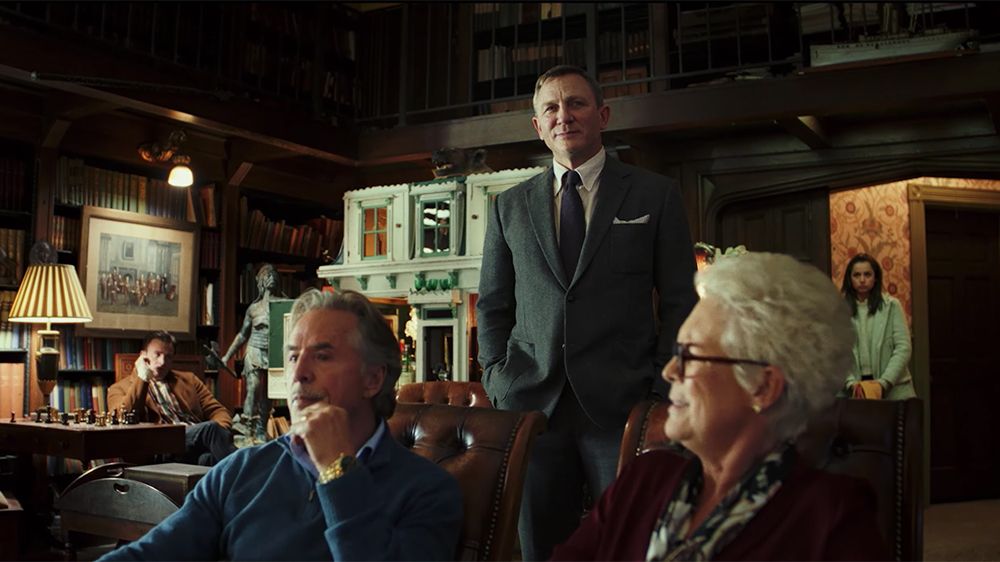
Which brings us to the social messaging of the film, which was obviously the reason Johnson wanted to tell this tale. I do like the idea behind it: poor Latina housekeeper inherits the fortune from a rich white family, flipping class structure on its head and forcing them to reckon with hardship for the first time. It’s a clever idea and a way to bring the genre into the present-day, but it didn’t quite work for me and felt blatantly on-the-nose. Not to say that the film oughtn’t have taken on a social message in the way that it does; Johnson just makes it so painstakingly obvious for the audience to understand what he’s trying to say. I mean shit man, it’s a MYSTERY film, the genre where you’re supposed to mask your true intentions, not wear them on your sleeve! Every one of Harlan’s children gets a scene where they espouse their vaguely-racist views of immigrants, which was completely unnecessary and felt unearned. We don’t need you to spell out for us so obviously that they’re hypocrites; their actions and behavior is proof enough of that without them needing to monologue at us about it.
There are a few instances where this social message does work well, however. While the three adult children all get obvious dialogue to highlight their hypocrisy, I like the way it was subtly set up beforehand. Jamie Lee Curtis’s character, for instance, holds herself up as a “self-made woman”, but only did so thanks to a million-dollar loan from daddy. There’s a great recurring gag where each of the adult children separately tells the nurse that they wanted her at the funeral, but was “outvoted”. Riiiight. And one of my favorite scenes occurs 2/3’s of the way in, when the rich granddaughter realizes that her college tuition rests on the goodwill of this “help” that she’s kept at arm’s-length before, and that realization hits her like a ton of bricks. THAT’S how you do messaging correctly, Rian! That’s taking a page out of Jordan Peele’s Get Out playbook: don’t make the white folks cartoon villains, make them seem nice and supportive at first, then gradually reveal their true colors under duress.
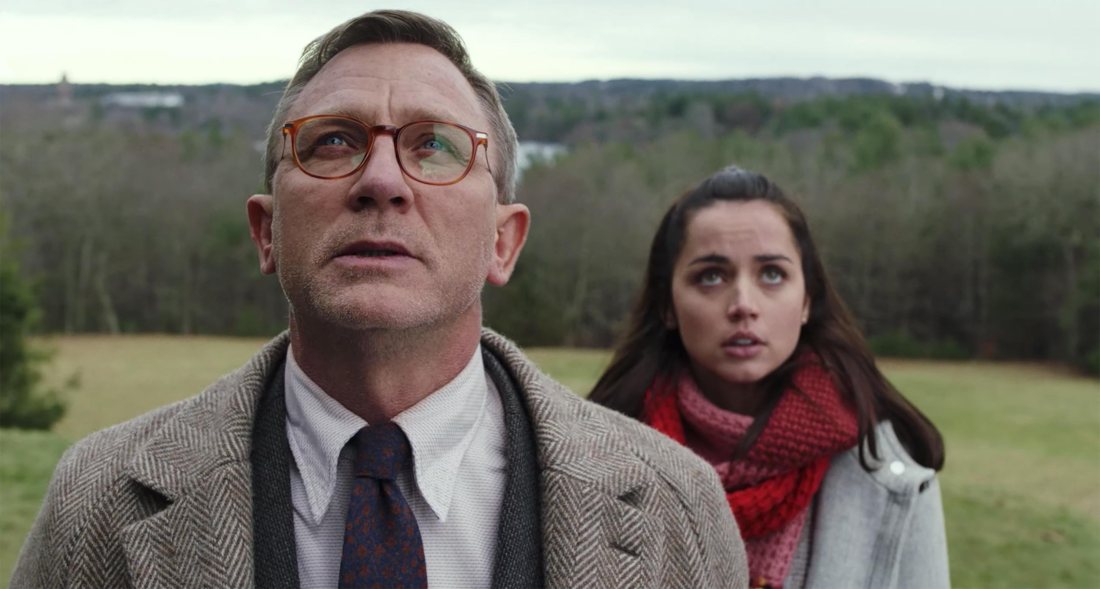
Back to positives for a moment. The technical aspects of the film are all gorgeous: the framing, the cinematography, the set design, all of it. Despite taking place 90% in one house, I never felt bored of the locale or like the filmmakers were constrained in their vision. Rian Johnson has never failed me as a director; I love his visual style to pieces, even if his writing leaves something to be desired. The script, with all its problems, is still cleverly-written with memorable characters and witty dialogue that kept me consistently entertained. It’s unavoidable that a film like this needs copious exposition dumps to get the audience up to speed, but Johnson found ways to make those scenes intriguing all the same. And the acting? Hoo boy, this film is chock-full of talented stars who all bring their A-game. You know when a film doesn’t have room for Michael Shannon, Toni Collette and Jamie Lee Curtis to demonstrate their full range, it has an embarrassment of riches on-hand. Craig, Evans, and De Armas are particular stand-outs, giving fantastic performances that both play against type and feel perfectly natural. Not an easy task!
Man, I wanted to like this film way more than I did. All the hype out of TIFF led me to believe this was a game-changer in the vein of The Usual Suspects, but it seems festival fever and the liberal sentimentalities of most critics has muddled the narrative a bit. Not to say it’s a bad film by any means; it’s just very forgettable and will cause a lot of people like myself to roll their eyes. I know Rian Johnson is capable of intelligent and SUBTLE writing, and he shows flashes of it here. But so much of Knives Out is just so obvious and spelled out for us, leaving absolutely no room for error or misinterpretation. As a straight mystery film, this is several notches above the baseline, so I give him credit for that. But as a message film, it is a scream and a stomping of the foot when a wink and a nod would’ve better conveyed the point. Mystery films are supposed to make you feel smart, not dumb, and I can’t escape the feeling that Rian Johnson treated me like a child.
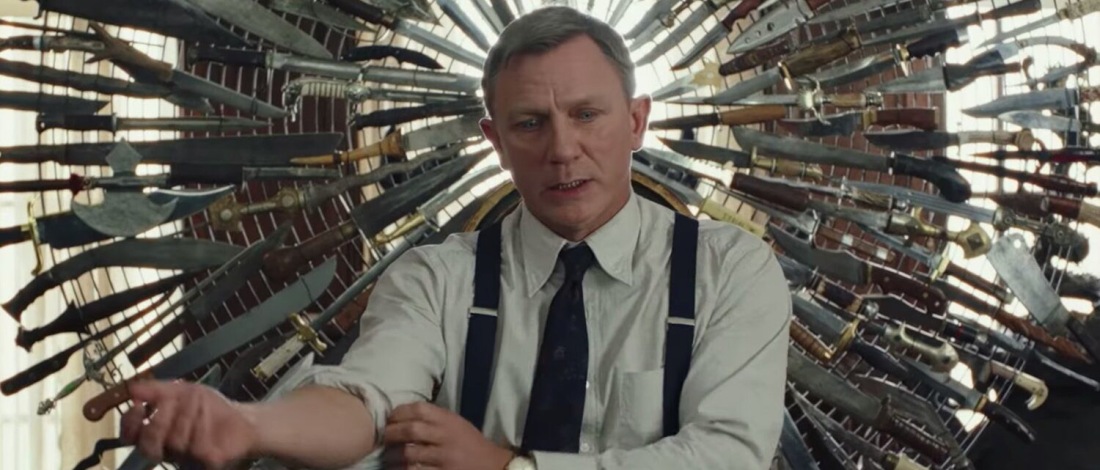
Conclusion
Knives Out is a fun and clever whodunit with some problems. There are several big coincidences that are difficult to accept without question, the social messaging is incredibly obvious and preachy at times, and the first 30 minutes are a total slog, almost losing me from the jump. The twists and turns are all fun and Johnson knows how to plot this in a way to keep the audience guessing, but the big reveal is a bit of an eye-roller and didn’t surprise me as much as I’d hoped it would. Everything works just well enough to pass inspection, but a proper script detective can see that there are holes in Rian Johnson’s story.
VERDICT: B
All image rights belong to Lionsgate.
-Austin Daniel